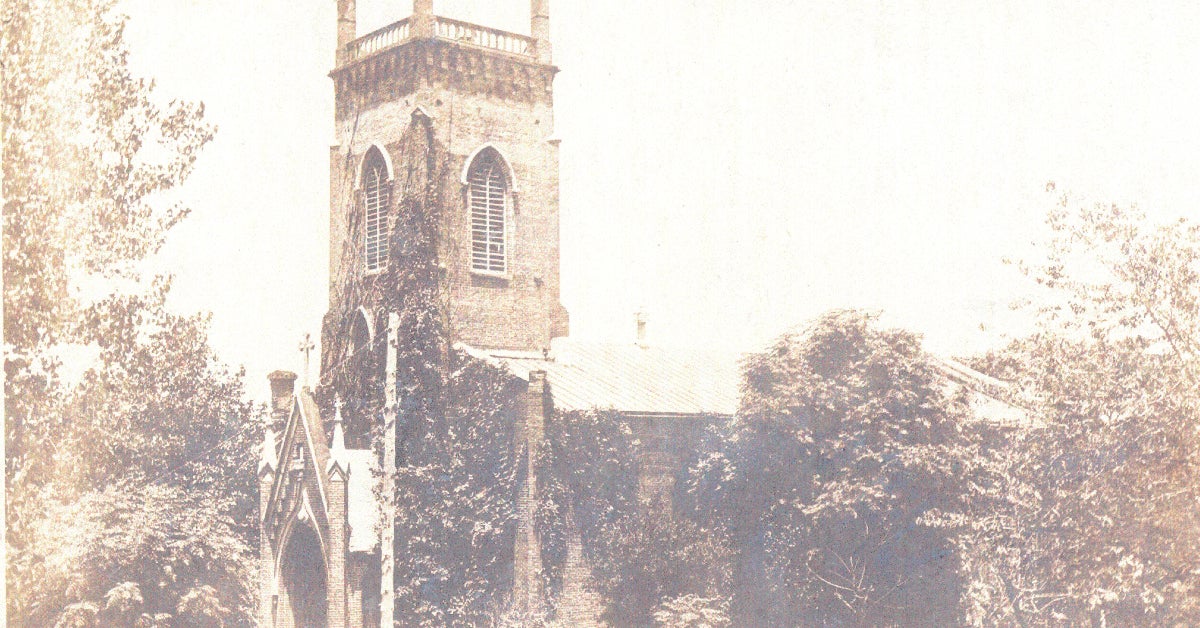FAITH UNDER FIRE: Christ Episcopal congregation continued services during siege
Published 4:00 am Sunday, July 2, 2023

- Services were held daily at Christ Episcopal Church during the siege of Vicksburg in 1863. Concussions from shells hitting near the church broke all but one of the church’s stained glass windows and shelling from Union ships destroyed the church rectory. (Photo courtesy of Christ Episcopal Church)
At the height of the Siege of Vicksburg, when constant shelling from Union gunships and mortar barges fell on the city from the Mississippi River and Maj. Gen. Ulysses Grant’s artillery pounded the city from the east, one thing remained certain: Christ Episcopal Church was holding daily prayer service.
“The church of which my father was rector was the only church in Vicksburg — with the exception of the Roman Catholic Cathedral — where services were held during the Siege,” William Lord Jr., the son of church rector the Rev. Dr. W.W. Lord, wrote in a 1908 Harper’s Magazine article on the Siege.
“As far as we know, it was every day,” said the Rev. Sam Godfrey, current rector of Christ Episcopal Church.
Lord held Sunday and daily services for church members who were willing to make their way through bursting shells to attend service.
Terry Winschel, retired historian for the Vicksburg National Military Park, said at one time early in the siege Lord announced he was suspending services, but was convinced by Emma Balfour and other ladies of the church to resume them.
Located at 1115 Main St., Christ Episcopal Church was organized in 1826, the year after Vicksburg was incorporated. It has a connection with the Civil War besides surviving the siege; Bishop Leonidas Polk, who would later become a Confederate general and receive the nickname “the Fighting Bishop,” laid the cornerstone for the church in 1839. Pope was killed in battle at Pine Mountain, Ga., in 1864.
Lord was a native of New York and when the Civil War began he chose to stay in Vicksburg with his congregation, Winschel said.
“Christ Church is the only antebellum house of worship in Vicksburg,” Winschel said.
The church’s foundation was brick and mortar with a basement. According to William Lord, the church basement served as a shelter for the Lord family at some point during the shelling.
The family, without the reverend, eventually relocated to a plantation in Flowers before returning and joining other Vicksburg residents in a cave to seek shelter from shelling. And like many buildings in the city, the church and its rectory were damaged.
The Lord family initially went to a large cave located at Farmer and Jefferson streets.
“It was one of the largest caves in Vicksburg, but a shell exploded over the cave, collapsing it and burying Dr. Lord,” Winschel said. “He was dug out before he suffocated.”
Winschel said Lord then had a cave dug for his family on a hillside near the site of Kuhn Memorial Hospital.
One day while the family was in their cave, Winschel said, the Lord’s daughter, Lina, began crying uncontrollably during a period of intense shelling. Margaret Lord tried to calm her daughter saying, “Don’t cry my daughter, God will protect us.”
Lina, who was still sobbing, responded, “Mama, I’m so afraid God’s killed, too.”
The greatest damage to the church was to its stained glass windows.
“The windows here (in the present church) are not original,” Godfrey said, pointing out that all but one stained glass window was lost during the Siege.
“The other windows weren’t blown out by artillery, but were damaged by the concussion from the shells and cannonballs hitting nearby,” he added. “The church was not damaged that much during the Siege.”
The lone window to survive, he said, was a German stained glass window installed in 1855.
“For years the story was that the church had not been hit, but in 1953 when the tornado hit Vicksburg they went upstairs to inspect the belfry and they found a cannonball,” Godfrey said.
The rectory, however, was destroyed by mortar and cannon rounds.
Godfrey said Lord’s wife described the damage as “a scene of desolation.
“The dressing room was in ruins, the end where the fireplace had been was blown entirely out; the nursery uninhabitable — a hole deep almost as a cistern in the middle of the floor. Every room in the house was injured and hardly a window was left whole.”
When Gen. John Pemberton surrendered Vicksburg on July 4, Lord and his family left Vicksburg under a pass from Gen. Grant. He would later return to Vicksburg after the Civil War and become the first rector of the Church of the Holy Trinity.






